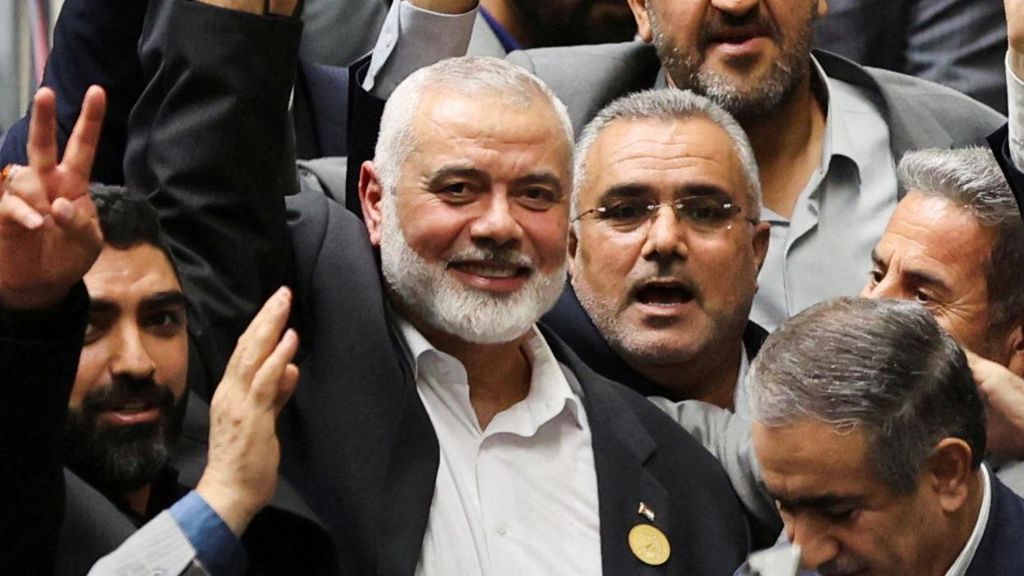Bowen: Israel's killing of Haniyeh deals hammer blow to ceasefire prospects

Hamas's political leader Ismail Haniyeh was killed shortly after attending the inauguration of Iran's new president
Israel has inflicted two devastating blows on its enemies.
It has not confirmed that it killed the Hamas political leader Ismail Haniyeh in Tehran, but it is hard to see who else would have wanted him dead more than the Israelis. As for the Hezbollah commander Fuad Shukr, Israel says he was killed in Beirut in an “intelligence-based elimination”.
For Israel, everyone senior in Hamas is a legitimate target after the attacks of 7 October 2023, which inflicted the worst single day of bloodshed on Israel since independence in 1948.
Fuad Shukr, Israel says, was killed because as a veteran Hezbollah commander he was responsible for the rocket attack that killed 12 children and young people in the Israeli-occupied Golan Heights.
Hezbollah has confirmed he was killed in the raid on Beirut. It denies carrying out the attack in the Golan.
Once again, the Middle East is full of speculation that the all-out war feared since 7 October is imminent. The deadly irony is no side wants that war, but increasingly they are prepared to risk it.
The Israelis have been under pressure from their American allies to calibrate their response to Hezbollah, inflicting a blow that will hurt the group without provoking a devastating retaliation and igniting a wider and deeper war.
But two assassinations amount to a major gamble.
The leader of Hezbollah, Hassan Nasrallah, might still decide that an attack on their stronghold in southern Beirut warrants a matching attack on Tel Aviv.
Israel might also have calculated that Iran would not go to war over an assassinated Palestinian leader, even though his death in their capital, under their protection, is a humiliation.
Killing Haniyeh, just after he had met the new Iranian president, is a dramatic display of Israel’s reach.
THIS AND MORE UPDATES AT: https://www.bbc.co.uk/news/articles/cp4wgqypwrxo

No comments:
Post a Comment